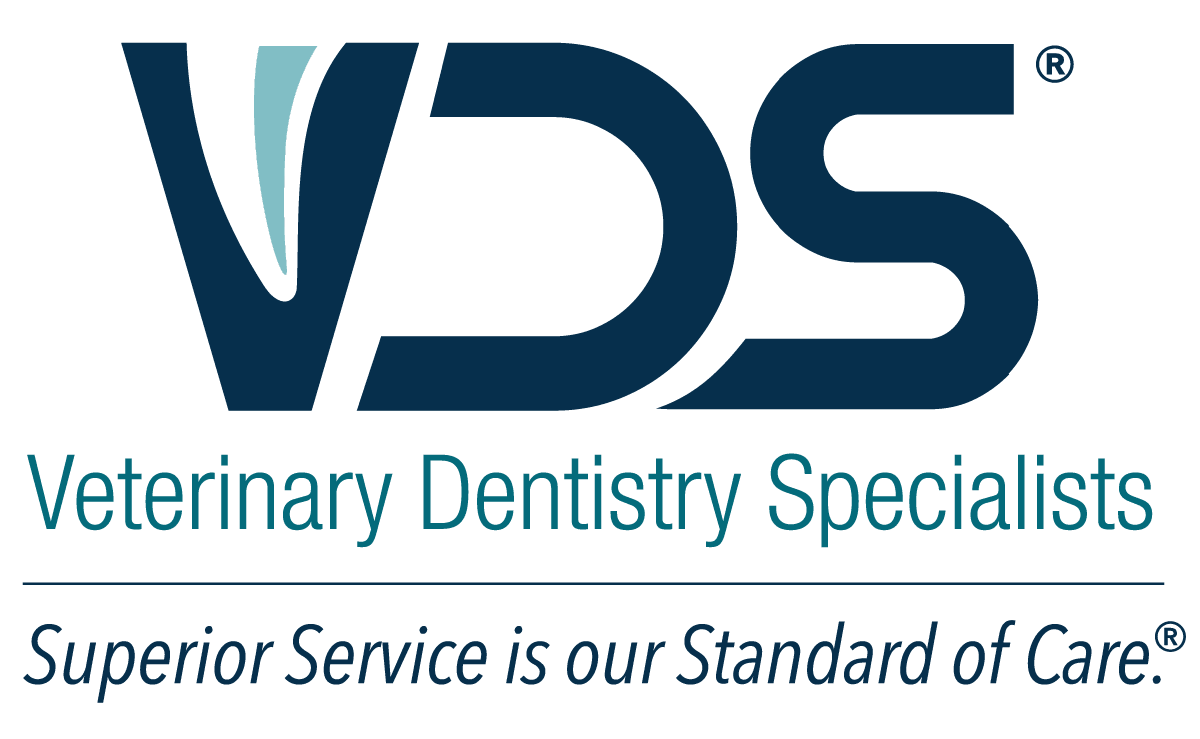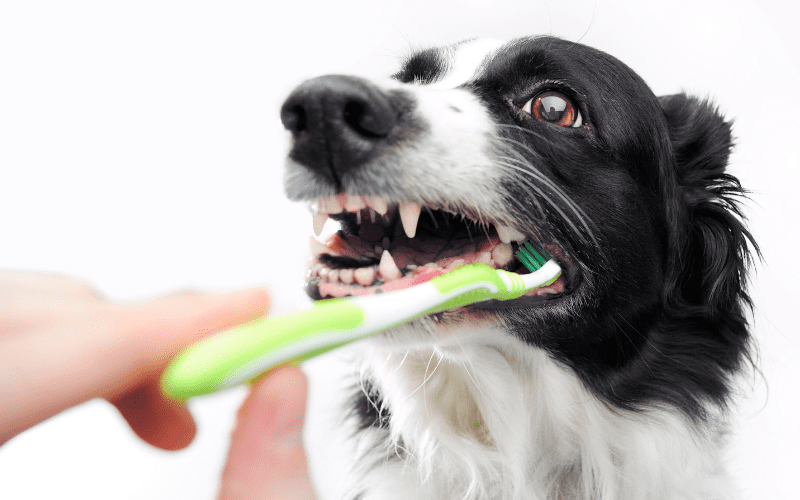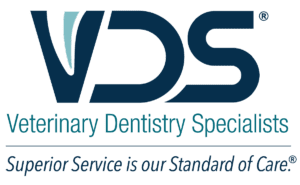February is Pet Dental Health Month — the perfect time to start a fresh new dental care routine for your pet! Starting an at-home dental care routine is an important part of responsible pet ownership. Just like humans, pets require regular dental care to maintain healthy teeth and gums, prevent dental disease, and avoid associated health problems. By starting a simple and consistent routine, you can help ensure your pet’s teeth and gums stay healthy, reduce the risk of dental disease, and ultimately, enhance your pet’s quality of life.
Brushing Teeth
The best way to prevent dental disease is by brushing your pet’s teeth daily. You can use a toothbrush or a finger brush to gently scrub all surfaces of each tooth, paying special attention to the area along the gum line. Be sure to use toothpaste made specifically for pets, as human toothpaste is not meant to be swallowed and can be toxic to pets.
To help get your pet used to the toothbrushing process, start slowly. Brush only one or two teeth at a time at first, and praise and reward your pet for allowing this process to occur. As your pet gets more comfortable with the routine, you can build up to brushing more teeth in each session until your pet allows their whole mouth to be brushed. This is also a good time to examine your pet’s teeth and gums and look for any abnormalities such as redness, swelling, or discolored teeth. Be sure to report these changes to your veterinarian right away.
Dental Wipes
Some pets won’t tolerate tooth brushing but may prefer a dental wipe. These medicated wipes have a coarse texture that helps remove plaque buildup, and some pet owners find them easier to use than a toothbrush. Like tooth brushing, you should start gradually and wipe only one or two teeth at a time, being careful to wipe along the gum line especially. Dental wipes can be purchased at many pet stores, online, or through your veterinarian.
Water Additives
Water additives are a great way to keep your pet’s whole mouth healthy. These products are odorless and flavorless, so your pet won’t know that you’ve added something to their water bowl. Every time your pet drinks, the water additive reduces plaque and bacterial buildup in the mouth, keeping your pet’s teeth and gums healthier. Look for products labeled with the Veterinary Oral Health Council (VOHC) seal, which means the product has been tested in clinical trials and proven to reduce plaque.
Dental Treats and Chews
While they are not a substitute for good tooth brushing, dental treats and chews can be a part of your home dental care routine. Pets often love the taste of these products and they’re good for removing plaque from your pet’s teeth. The downside is that some pets prefer to chew with one side of their mouth over the other, so these products may not provide full mouth coverage. Like water additives, you should look for products that are labeled with the VOHC seal to know that you are getting a product that has been clinically tested and approved.
Regular Veterinary Examinations
Regular veterinary care and routine examinations are essential to preserving your pet’s oral health. Unfortunately, our pets often do not show signs of dental disease until the disease has progressed and becomes severe. Dental disease is often first identified by a primary care veterinarian during a routine physical examination. Dental problems, such as plaque buildup and periodontal disease, can cause significant pain and discomfort for our furry companions. If left untreated, they can lead to serious health issues such as infections and even organ damage. Regular dental check-ups can identify and treat potential issues before they become more serious, preventing unnecessary suffering.
Professional Dental Cleaning
While regular at-home brushing can help to remove surface-level plaque, professional cleaning is required to remove the buildup of tartar. A thorough professional cleaning involves a full examination of the teeth and gums, radiographs (x-rays) of the entire mouth, and the removal of any accumulated tartar and plaque using specialized equipment such as ultrasonic scalers and polishing tools. Professional cleanings can also help identify and treat underlying dental issues such as gum disease or tooth decay. Neglecting annual dental cleanings can lead to more serious health problems, including tooth loss and the spread of bacteria throughout the body, which can affect vital organs such as the heart, liver, and kidneys.
Resolve to Start an At Home Dental Care Routine Today!
With so many options to help manage your pet’s dental care, you’re certain to find a routine that works well for you and your pet. Regular dental care can help prevent dental disease, reduce the risk of associated health problems, and ultimately enhance your pet’s quality of life. You can make a significant difference in your pet’s dental health by following a few simple steps, such as daily brushing and providing dental-friendly chews. Remember to also schedule regular check-ups with your veterinarian. With a little time and effort, you can help ensure your furry friend’s teeth and gums stay healthy for years to come.






